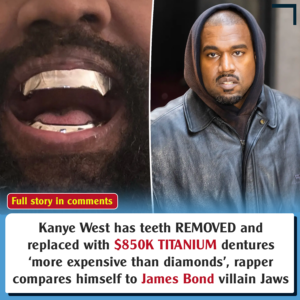Colombian singer and songwriter Shakira came to international prominence in the early 2000s when she released her first English crossover album after learning to speak the language.
Fellow singer Gloria Estefan is credited with teaching Shakira English for her fifth studio album and her first in English, titled Laundry Service.
Estefan’s husband, Cuban-American musician and producer Emilio, had identified Shakira’s potential to become an international star and became her manager.
Laundry Service contained the single Whenever, Wherever.
Released in 2001, the song was a massive hit for Shakira who would later become known as the Queen of Latin Pop.
Her sound was distinct and catchy. Her dance moves captivating. And the world was paying attention.
She has sold millions of records worldwide.
Shakira received the Michael Jackson Video Vanguard award at the MTV Video Music Awards at this month’s ceremony.
It’s a lifetime achievement award given for “outstanding contributions” and “profound impact” on popular culture.
The prestigious award has previously been won by artists such as David Bowie (1984), Madonna (1986) and Jennifer Lopez (2018), who became the first Latin star to win the award.
But Shakira, whose full name is Shakira Isabel Mebarak Ripoll, has found herself in hot water recently.
What we know about the singer’s tax woes
This isn’t the first time Shakira has been accused of tax evasion.
A year ago, reports emerged that prosecutors had charged the pop star with six counts of tax fraud for failing to pay 14.5 million euros ($23.7 million) in income taxes.
She was accused of failing to pay income taxes to the Spanish government between 2012 and 2014, but said that was a period she was not living in Spain.
At the time, the singer’s representatives said she had repaid the money and had no “tax debts with the Spanish Treasury”.
She has opted to go to trial in November in Barcelona in that case, for which she could be jailed for up to eight years.
This week, a second tax claim was lodged against her by a Spanish prosecutor, who accuses her of defrauding the state of 6.6 million euros in 2018.
In the new case, the prosecutor alleges that in 2018, Shakira failed to declare profits of $19.3 million that they allege she received as an advance payment for her El Dorado World Tour, among others.
Spanish tax officials opened the latest case in July. They decided to bring charges after reviewing the evidence gathered over the last two months. No date for a trial has been set.
According to reports, in 2018, Shakira was in a relationship with her now ex-partner FC Barcelona soccer star Gerard Pique and living in the city with their two children.
Shakira has been linked to Spain since she started dating the now-retired soccer player. The couple lived together in Barcelona until last year when they ended their 11-year relationship.
Prosecutors say she was a resident in Spain and therefore required to pay tax on all her worldwide revenues there, no matter where they were earned.
But they argue she diverted money to “companies domiciled in countries with low taxation and high opacity”.
The 46-year-old is accused of failing to pay 5.4 million euros in income tax and is calculated to owe 6 million euros after taking into account accrued interest but also voluntary payments.
She is also accused of defrauding the state of 773,600 euros in wealth tax, resulting in a debt of 625,190 euros.
Despite reports, Shakira’s legal team said this week she had not received any notification of the new case in Miami, where she is now based.
“Shakira’s legal team is focused on preparing for the trial for the 2012-14 fiscal years, which will begin on Nov. 20,” they said in a statement provided to media outlets including Reuters, AP and Billboard.
The three-time Grammy award winner turned down a deal with prosecutors in the 2012-14 case, saying she was confident that she had behaved correctly and transparently from the start.
Over the past decade, Spanish tax authorities have cracked down on soccer stars such as Lionel Messi and Cristiano Ronaldo for not paying their taxes in full.
Both have been found guilty of tax evasion but avoided prison time because of a provision that allows a judge to waive sentences under two years in length for first-time offenders.





